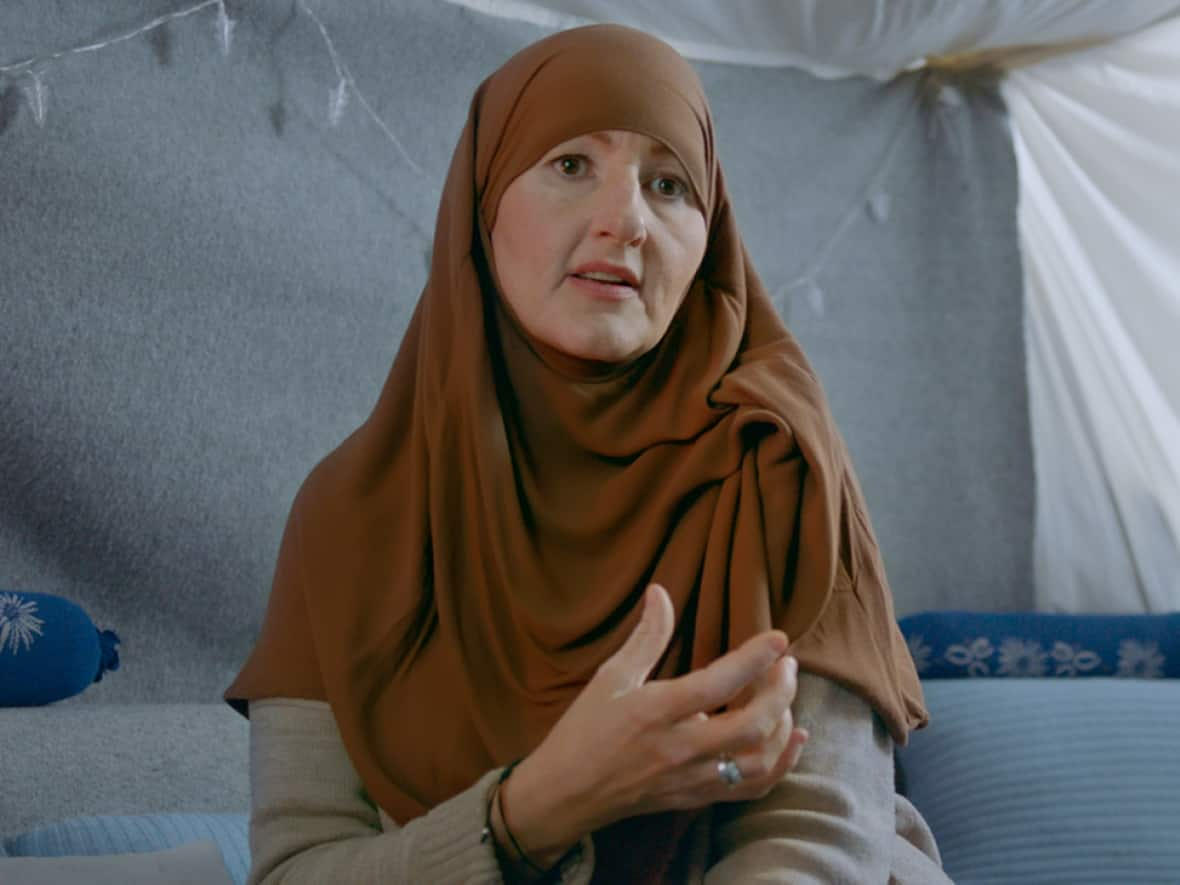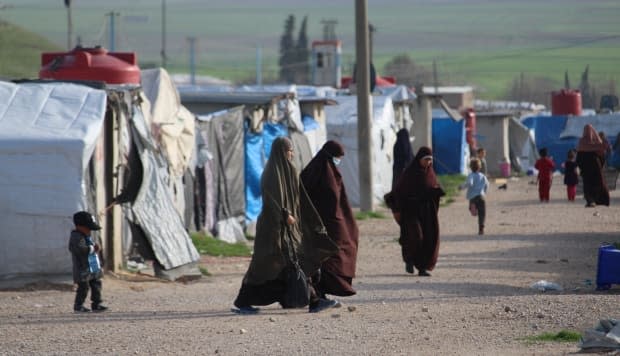At least 2 Canadian women and their children returning from ISIS detention camp

At least two Canadian women have left a detention camp in Syria and will be arriving in Canada on Wednesday morning, CBC News has learned.
The women left the al-Roj camp in northeastern Syria — which holds women allegedly tied to ISIS and their children — and were headed for northern Iraq on Tuesday morning with an unknown number of children, according to multiple sources.
Ottawa lawyer Lawrence Greenspon said he has learned that Kimberly Polman, his client, is out of the camp and her tent has been taken down.
Greenspon said Global Affairs Canada told him Polman and the others being repatriated are all expected to arrive in Montreal on Wednesday.
"It's very good news," said Greenspon. "It shows Canada ... is capable of bringing home our Canadian nationals held in detention."
WATCH | Justin Trudeau on repatriation of Canadian women, children from Syria:
Greenspon is representing 23 Canadian men, women and children who are being held in ISIS detention camps in northeastern Syria. He has been pushing at the Federal Court to get them home.
He said he's "certain" that the federal government is allowing Polman to return home due to her health. He confirmed Polman qualified for "extraordinary assistance" under a new policy adopted last year by Global Affairs Canada for those who could not be treated in Syria for life-threatening medical conditions.
"She has been in detention camp for over three years," said Greenspon. "Her health is very dire. She's in a very tenuous health situation."
The repatriation effort comes eight months after United Nations human rights experts urged Canada to repatriate Polman and said her conditions met the definition of "torture, cruel, inhuman and degrading treatment."
The UN's experts said Polman travelled to Syria in 2015. Polman, who was featured in the documentary "The Return: Life after ISIS," said she was in a "terrible place" when she was found online by the ISIS member who later became her husband.
Her sister told CBC News last year that Polman's "basic human rights are not being met." She said her sister "had a right to a fair trial at the very least, or being charged with something" before she was detained.
WATCH | Polman explains why she joined ISIS:
Canada's position has been that, for security reasons, it would not send consular assistance to meet these women, even though a number of other western countries have done so.
Greenspon's application to the Federal Court said the Autonomous Administration of Northeast Syria (AANES) has agreed that if the Canadian government makes an official request for repatriation, AANES will make it happen.
Greenspon said he has been trying to get the Canadian government to move forward with that official request. The Federal Court has now adjourned hearings on the matter until December; they were supposed to take place on Nov. 2 and Nov. 3.
He said if there's evidence sufficient to prosecute any of the Canadian male detainees, they should be brought home for trial.
"They're sitting there rotting in prison," he said. "They're Canadian, they haven't been charged with anything. And yet, [the government] seems to be quite OK to let them rot over there."'
Minister says supporting a terrorist group is a criminal offence
The Canadian government's involvement in this ongoing repatriation effort is not clear. CBC News has asked the federal government what its role is in the repatriation effort and if it has issued emergency passports.
Prime Minister Justin Trudeau said Tuesday that his government is "of course aware of Canadians being detained in Syria and we spend a lot of time monitoring them with stakeholders and watch carefully what's going on."
"We have protocols in place," said Trudeau. "We particularly pay attention to the wellbeing of children in that area, but as you know, I don't comment on direct operations."
WATCH | Women and children who were in ISIS camp on way home to Canada:
CBC News asked Public Safety Minister Marco Mendicino about the government's involvement. "We don't talk about any individual case," he replied.
"Supporting a terrorist group, whether here or abroad, is a serious criminal offence. Those who engage in that kind of activity will face the full force of the law."
U.S. diplomat Peter Galbraith helped to free a 4-year-old Canadian girl in March 2021 and called on Canada to repatriate all of the children still stranded there.
Months later, the Canadian government issued an emergency passport to the mother of the 4-year-old so she could return to Canada and reunite with her daughter.
Galbraith said news of this latest repatriation effort is a sign Canada is changing its position.
"No child should be confined to a place where their lives are in danger and conditions are appalling," Galbraith said. "I think Canada is perfectly capable of judging the adults for what they have or have not done."
The government also helped to repatriate a five-year-old Canadian orphan in 2020 after her family was killed in an air strike. Greenspon filed a Federal Court case earlier that year to bring the orphan to Canada to live with her family.
WATCH | The Canadian mothers inside an ISIS detention camp:
Human Rights Watch estimates that, before today, roughly four dozen Canadian men, women and children — most of them under the age of six — remained in detention camps in Syria.
Farida Deif, the Canada director at Human Rights Watch, said the Kurdish forces running the camps have pleaded with governments around the world to repatriate their citizens because they don't have the resources to continue to detain them.
Canadian government "really hasn't lifted a finger" to provide consular support to repatriate the Canadians in detention in Syria. She said Ottawa has taken a piecemeal approach that's led to a small number of Canadians being brought home.
"That's certainly not a tenable solution to the unlawful detention of dozens of Canadian men, women and children," said Deif.

Deif said Canada is increasingly an outlier among western countries that already have have moved to repatriate their citizens to prosecute them at home.
France repatriated 40 children and 15 women from Kurdish-run camps in northeastern Syria last week. Australia's government has said it's preparing to repatriate Australian women and children of Islamic State fighters from detention camps.
As of last year, Kazakhstan has repatriated more than 600 of its citizens, mostly women and children, along with some suspected ISIS fighters. Finland freed six children and two mothers last year.
The Belgian government says it plans to repatriate dozens of children and is considering accepting some women with children on a case-by-case basis.
Phil Gurski, who spent 15 years with the Canadian Security Intelligence Service and has written a book on the history of terrorism in Canada, said "those who joined ISIS knew what they were doing. The kids did not."
In Gurski's view, men and women with ties to ISIS should face charges when they return to Canada.
Other terrorism experts have suggested those in camps could be working to smuggle themselves out.


